As blood-thirsty beings, their only mission is to drink blood from the host and because of that, their survival instinct is strong, allowing them to burst through various harsh conditions. But, when it comes to water, bed bugs might not be that strong.
Can bed bugs survive in water? Bed bugs can survive in water but their time is pretty limited, up to 24 hours, once water submerges them. They don’t drink water and they don’t need it in order to survive but they do require fluids. They get fluids and food from the blood when they feed.
Since water can be effective in killing bed bugs, we feel obligated to make this article as in-depth as possible. Bed bugs might be stubborn and hard to kill but it’s not impossible. We suggest that you sit back, relax, and stay with us until the very end.
Do Bed Bugs like Water?
Bed bugs don’t like water. Water represents a threat to them, especially if we’re talking about them drowning or using hot water against them.
Bed bugs and water have one very strange relationship, unlike almost every living being on this planet. They can survive without water throughout their entire lifespan, which makes them invulnerable to the lack of water. This means that their survival is almost guaranteed in every condition.
Do Bed Bugs Drink Water?
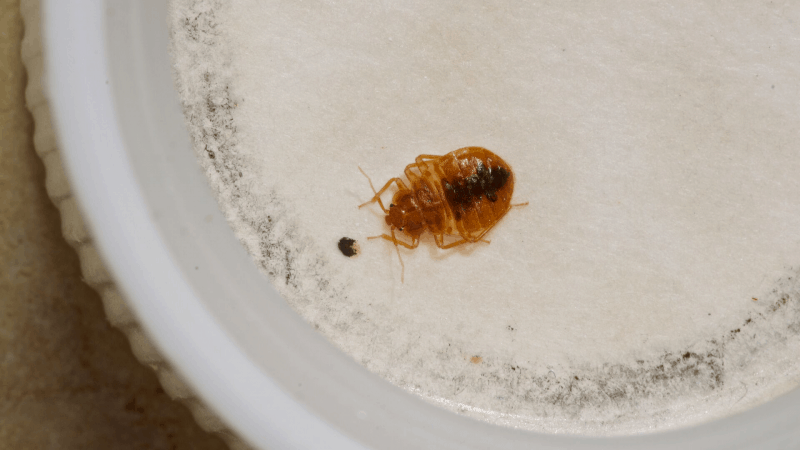
Bed bugs are rare creatures that don’t need to drink water in order to survive. Blood isn’t hard to come by because most living beings have it and this is why bed bugs always stay full when they infest our houses.
Having in mind that blood also contains water and bed bugs consume it, some would say that water is obligatory for them to survive. This isn’t true because even though the blood has water, fresh water won’t help bed bugs survive and they will never seek it.
Bed bugs’ feeding instinct is triggered by the warmth and scent of your skin. This is the main way bed bugs survive. If they don’t feel your skin nearby, they’ll most likely stay hidden and won’t seek any other resource.
Can You Drown Bed Bugs in the Water?
Bed bugs have flat bodies with small legs that don’t allow them to swim or burrow. This means that bed bugs can be drowned and killed using water.
Theoretically, you could submerge bed bugs underwater and wait for them to suffocate but in real life, that is almost impossible. Bed bugs will often hide in your bed or various cracks in your house. Pulling them out and drowning them is an impossible and pointless mission.
Even if you manage to do so, you can only drown a certain number of them and not the whole infestation. Furthermore, drowning bed bugs is a time-consuming process because they can endure being underwater.
How Long Can Bed Bugs Live Underwater?
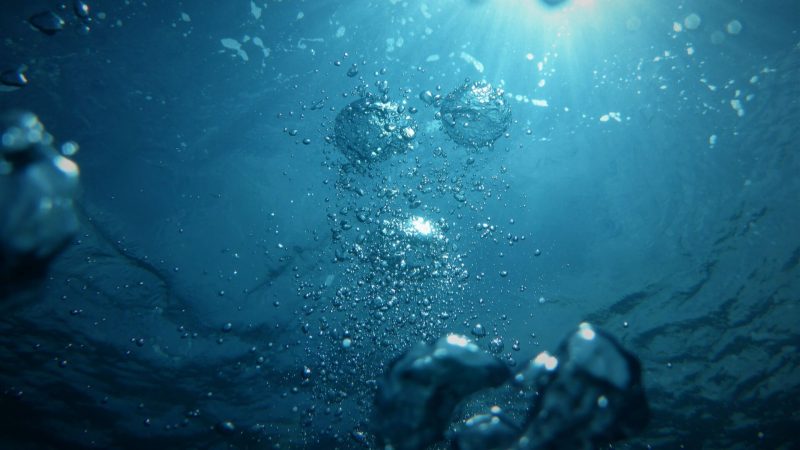
Bed bugs can live up to 24 hours underwater – much more than a human can. When we said that bed bugs are well-prepared for every circumstance, this is what we meant.
Water can wipe out bed bugs but is it worth waiting a whole day to kill them? When you see bed bugs, it’s much easier to squash them with your foot or something else than drown them.
Given the fact that they can survive in different temperatures, you’ll need really hot water to kill them.
Do Bed Bugs Die in Water?
Does Hot Water Kill Bed Bugs?
Hot water does kill bed bugs but it needs to be very hot water of 140°F and above.
We’ll give a classic example here – your washing machine. Washing your bedding infested with bed bugs can seem like a great solution. Wash your bedding, then all the bed bugs are washed out, and it’s like new. However, it’s not exactly like that because you’ll need very hot water (140°F +) to properly kill them.
Does Cold Water Kill Bed Bugs?
Cold water doesn’t kill bed bugs unless we’re talking about drowning, which is, as we said, almost impossible to replicate. In the washing machine, you can use cold water to wash your bedding but chances of killing bed bugs are minimal, if not non-existent.
Now, you can say that bed bugs are drowned in washing machines. That is the truth to a certain extent because once the centrifuge starts spinning, it’ll not remain drowned at every moment in time.
Furthermore, you’ll need 24 hours to kill them by drowning. Do you think that your washing machine can keep working for 24 hours?
Does Boiling Water Kill Bed Bugs and Their Eggs?
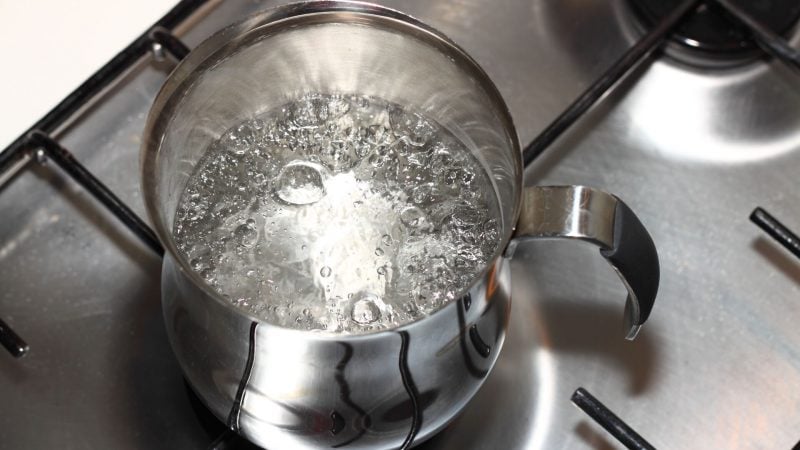
Boiling water is great for killing all types of pests and insects, including bed bugs. As we said before, very hot water can kill bed bugs even if they don’t drown. In the case of boiling water, it’s even easier to kill them, as you’ll only need to splash them with it and they’ll die almost instantly.
We often use this method to kill a large sack of bees or hornets that infested part of our homes. We boil water and splash it over the nest to kill these insects.
The same method can be used to kill bed bugs but only if you see them. Be careful not to damage stuff in your house while doing so because boiling water is very dangerous. Also try not to spill it on yourself, as it can severely damage your skin.
Do Alcohol and Water Kill Bed Bugs?
Using only alcohol to kill bed bugs is possible and it is a good method to get rid of them. Alcohol works by killing bed bugs on contact, so you’ll need to sprinkle it directly in the place of infestation. As for alcohol and water, this solution isn’t that effective because we have the second component – water.
While alcohol kills bed bugs on contact, it’s not that smart of a choice because it smells awful, is flammable, and it only kills on contact, so there’s no residual effect.
Does Hot Water and Bleach Kill Bed Bugs?
Both diluted and undiluted bleach kills bed bugs but we recommend using the first one. The reason for this is that bleach is very potent and will not only kill bed bugs but also damage your respiratory system.
Bleach should be diluted with hot water. This way, it’s less damaging to your health and your mattress, if that’s what you’re using it for.
Undiluted bleach is more effective for killing bed bugs but it’s also more damaging to your health. Hot water with equal amounts of bleach is more than enough to annihilate bed bugs wherever you want.
Will Soap and Water Kill Bed Bugs?
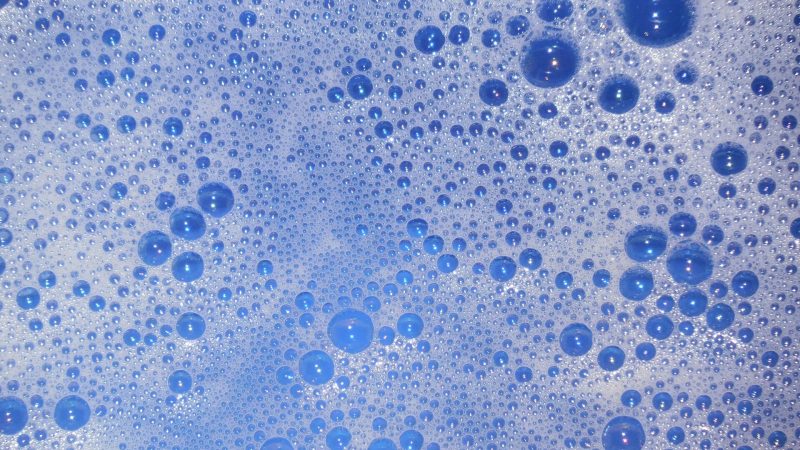
Soap in combination with water will not kill bed bugs. Bed bugs are resilient to soap and will not die unless you grab the soap and smash bed bugs with it. When dissolved in water, it’s non-lethal.
Will Salt Water Kill Bed Bugs?
Salt is known to have amazing liquid-absorbing capabilities. But, when compared to diatomaceous earth, it’s not as effective. Using salt and water to kill bed bugs is pointless, as it won’t do anything let alone kill bed bugs.
If salt is used to absorb the liquids and you use it with water, then it’s a counter-effect with no purpose. Using only salt, on the other hand, might be slightly more effective but since you can purchase Diatomaceous earth for a silly price, salt is obsolete.
- PEST-KILLING DUST: Use indoors or outdoors to control listed...
- NO ODOR, NON-STAINING: Use a hand duster, power duster or squeeze...
- CONTROLS: Kills cockroaches, ants, silverfish, beetles, fleas,...
- WHERE TO USE: Use in enclosed spaces such as apartments, attics,...
- Garden safe diatomaceous earth
Do Vinegar and Water Kill Bed Bugs?
Vinegar alone is a great substance for killing bed bugs. It’s used the same way as alcohol. You grab a spray bottle, pour some vinegar inside, and spray around your house. However, mixing vinegar with water will reduce the effect of vinegar, making it less potent and less likely to kill bed bugs.
Vinegar also kills bed bugs on contact, meaning that you need something that will kill them quickly. We don’t recommend mixing vinegar with water. Remember that vinegar, depending on the alcohol percentage, can also damage your furniture if used too much.
What Temperature of Water Kills Bed Bugs?
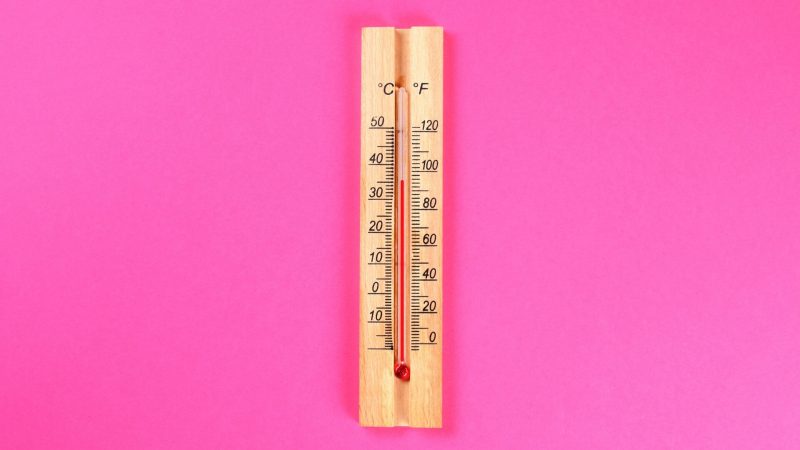
The water temperature of 140 degrees Fahrenheit (60 degrees Celsius) kills bed bugs. When using laundry to kill bed bugs, this is the temperature you want to aim for. In this scenario, a wash cycle of 30 minutes can successfully kill both bed bugs and their eggs.
This also backs up the boiling water method. Water boils at 100 degrees Celsius, making it all the more effective in killing bed bugs. But, this also has a downside, as boiling water can damage your skin and other stuff in your home.
Do Bed Bugs Swim in Water?
Bed bugs can’t swim in the water, so even the smallest amount of water can submerge and kill them. When taking drastic measures, this can be used to your advantage.
However, bed bugs, due to their small weight, will float on the top but will eventually die since they can’t breathe. Bed bugs use pores around their bodies to inhale air, as they don’t have lungs and mouths as humans do.
When a bed bug is in the water, water fills up its pores and they are unable to inhale air. Despite this, they can still survive for 24 hours drowned in water.
The important thing is that they die after this. Even if they could swim, because of their specific body with pores, they’ll still die. Air is still something we all need and bed bugs are not an exception.
Water Treatment for Bed Bugs: 3 Best Methods with Using Water | Step-by-Step Instructions
Method 1 – Using a Washing Machine
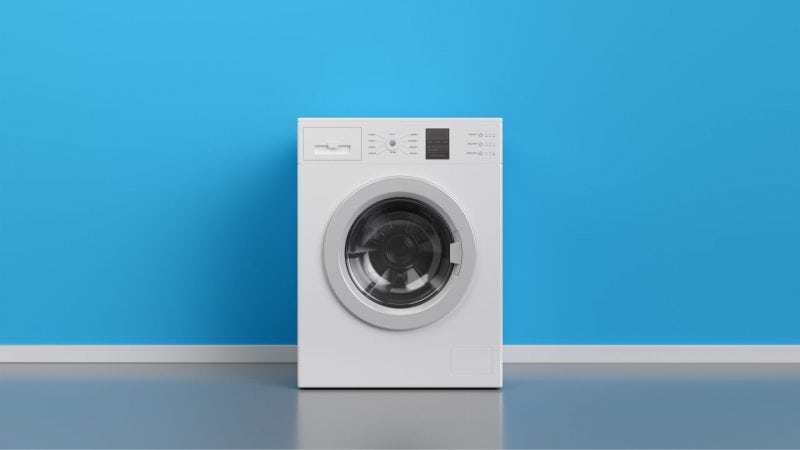
Step 1: Pack your mattresses, bedding, and other infested stuff in a plastic bag.
Step 2: Carefully carry them over to your washing machine.
Step 3: Put the infested stuff in the washing machine. Be careful not to do it very quickly or bed bugs will be disturbed.
Step 4: Use hot water with a temperature of 140 degrees Fahrenheit.
Step 5: Use the detergent in larger quantities. Although it’s not guaranteed that it’ll have an effect, detergent in high enough quantity will be toxic to their life.
Step 6: Wait for the cycle to finish. Then, leave the bedding to dry.
Step 7: Repeat the cycle if needed. Use the previously infested stuff when it’s completely dry.
Method 2 – Using Boiling Water
Step 1: Use a big pot and pour some water inside.
Step 2: Place a pot on the burner. Then, wait for it to boil.
Step 3: Pour the water into a glass and splash it over the infested area.
Step 4: Repeat the process and check if the bed bugs are dead.
Method 3 – Use Diluted Bleach
Step 1: Place a pot on the table.
Step 2: Use hot water. Then, pour it into the pot.
Step 3: Use the same amount of bleach. Then, pour it into the water.
- BLEACH: Clorox Germicidal Bleach can be used for disinfecting,...
- DISINFECTANT: EPA registered to kill more than 70 pathogens;...
- DEODORIZER: Germicidal bleach eliminates odor causing bacteria...
- LAUNDRY STAIN REMOVER: Clorox Germicidal Bleach fights tough...
- GREAT FOR COMMERCIAL USE: Ideal for use in healthcare...
Step 4: Stir until the bleach is perfectly diluted.
Step 5: Pour the mixture into the spray bottle.
Step 6: Use this mixture to spray around your house but don’t spray it too much on the furniture, as it can potentially damage it.
Step 7: Repeat the process for a few days and see if the infestation has subsided.
List of Sources
Merchant M., Bed bugs: Do-it-yourself control options, Texas A&M AgriLife Extension Service, Dallas
Controlling Bed Bugs. Pesticides: Controlling Pests. (2022). EPA.
Romero A. (2011). Moving From the Old to the New: Insecticide Research on Bed Bugs since the Resurgence. Insects,
- How to Get Rid of Copperheads | Practical Guide - August 27, 2023
- How to Get Rid of Corn Snakes | What Makes Them Aggressive? - August 27, 2023
- How to Get Rid of Alligators | Safety Measures and Removal Methods - July 16, 2023


